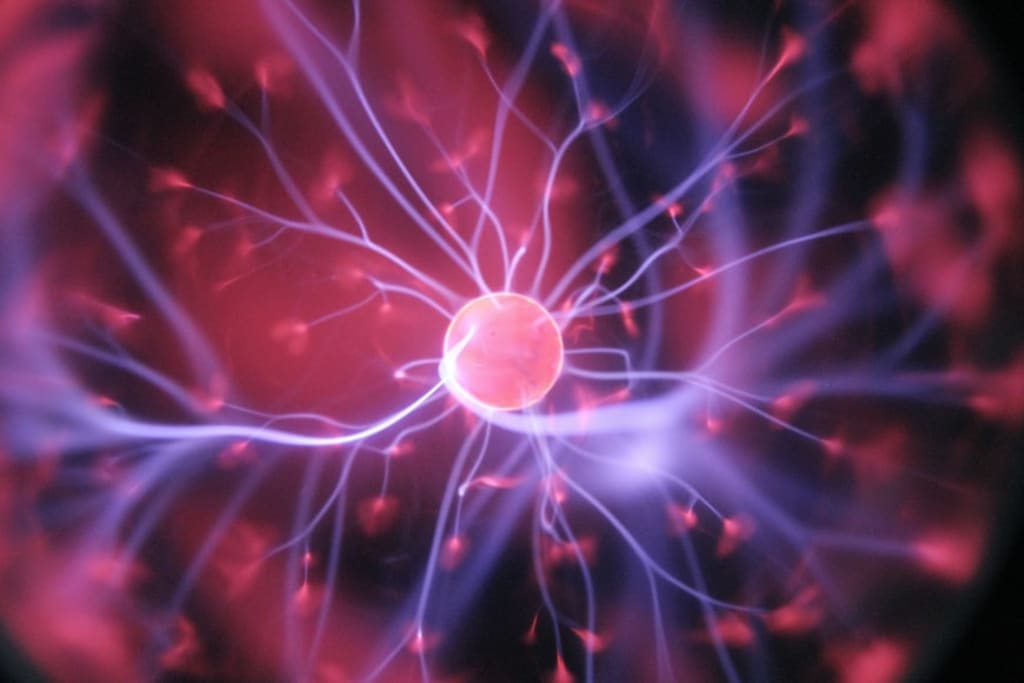Simple Steps to Rewire Our Brains for Kindness
Everybody isn't kind, but we can all become kinder

Last night I was getting ready to make a left turn. Signal on, I waited for a jeep approaching from the opposite direction to pass.
The driver behind me didn’t seem to think I should wait. He leaned on his horn, trying to bully me into swerving in front of the jeep. I might have been able to make it, forcing the jeep driver to slam on his brakes. But I chose to wait.
After I completed my turn, the angry, horn-blowing driver zoomed past, blasting his horn all the way down the street.
Gratified to see him stopped by a red light, I sat in my car for a few minutes, seething and thinking evil thoughts about road rage revenge. Then it dawned on me that I was about to carry my newly acquired bad mood into a meeting. Instead of getting off to a positive start, I would inflict my dourness on everybody else.
I decided then and there to change my mood, whether I felt like it or not. The meeting was for a group of caregivers who were already stressed by their caring situations. They didn’t need me spreading the angry driver’s unkindness.
Kindness is the quality of being generous and considerate, concerned and caring. It’s a willingness to think about how someone else might feel. When we practice kindness, we recognize our common humanity and support those around us.
Kindness is the opposite of impatience, selfishness, angry outbursts and disregard for the feelings of others.
The driver in the expensive Lexus behind me was spewing unkindness like a poison, blasting his impatience and hostility to anybody who happened to be in his entitled way.
We Spread Our Attitudes
Both kindness and unkindness have ripple effects, spreading beyond the original pebble dropped on an unsuspecting recipient.
If I had carried the angry driver’s unkindness with me into the meeting, a recipient of my attitude might have taken that bad attitude home, where it would have spread its ugly tentacles.
Bad attitudes are like weeds, choking off the beautiful garden we could cultivate. As my friend KD Murray says, “Spread seeds of joy like wildflowers everywhere you go.”
If we’re spreading seeds of joy, we’re not blasting horns at the person in front of us for being in our way. Kind people don’t heap negativity on somebody who might already be having a bad day.
We don’t know what the people we encounter every day are going through. Our actions could tip the balance for them, sending them in a downward spiral or giving them a much-needed boost.
An article in HuffPost indicates that kindness could change the world:
“Kindness is a simple concept, yet so very impactful. It can make the world a better place by ending suffering at the hands of war, hunger, human rights violations, and injustice. It has the power to drastically improve our own well-being as well as that of our families, friends, acquaintances, and strangers. The very act of expressing graciousness to one another can make us more empathetic of other people’s hardships.” Global Yodel in HuffPost
Imagine how you felt the last time somebody was kind to you. Maybe it was a little thing, like a smile or a compliment. Or maybe it was something bigger; a co-worker offering to share responsibility for a project that overwhelmed you or a meal delivered to your front door when you were feeling down.
Kindness has the power to lessen depression, improve job performance, mend relationships and put the brakes on hostilities. And it doesn’t just help those we’re being kind to. According to research, true happiness comes from practicing kindness.
“It is when we help our fellow man, when we feel connected to the world, when we give expecting nothing in return, when we are kind just to be kind, and when we see people as ‘other-selves’ instead of ‘others’ that life takes on meaning and person.” (from How Meditation Makes you Kinder and Happier, EOC Institute)
Retraining our brains
But aren’t some people just naturally kinder than others? Aren’t they empaths, whereas the rest of us are a hair-trigger away from giving off our grumpy vibes to the world?
Not according to happiness researcher Shawn Achor, who demonstrated that if you perform random acts of kindness two minutes a day for 21 days, you can retrain your brain to be more positive.
“Training your brain to think differently physically changes your brain. That’s why so many therapists use cognitive behavior therapy (CBT) to help people create long-lasting change,” says Amy Morin, LCSW, in Psychology Today. “Neuroimaging reveals that CBT modifies neural circuits involved in the regulation of negative emotions.”
The changes are long-lasting because we are, in effect, building “mental muscle.”
This ability to form new connections and neurons in the brain regardless of how old we are is called neuroplasticity. And what’s even more encouraging is that new pathways overwrite the old ones.
Becoming kinder, a step at a time
But how do we do it? What about when people rub us the wrong way?
In an era of technology when people are able to live stream every ill-considered thought, a lot of us have been victims of trolls, public shaming, unwarranted anger, and spiteful words. We can feel the blood pressure rising and be overwhelmed by the desire to retaliate.
Maybe instead of retaliating, we should be meditating.
Meditation is one way to ratchet up our kindness meter, according to a UCLA School of Medicine study. When we meditate, we launch our “compassion consciousness.”
After the angry horn blower incident, I almost barreled out of my car and stormed into the meeting. But I waited a few minutes, breathed a silent prayer and focused on being calm. I shifted mental gears. Or you could say I meditated.
We don’t retrain our brains all at once. We take a small-step approach, incorporating small acts of kindness into our day. If someone or something triggers a negative response, we take a step back, examine our emotions, breathe deeply and wait until the initial wave of emotion subsides. We are refusing to spread the sort of negativity that’s been dumped on us.
Kindness is a strength
Practicing kindness is easier if we really look at other people. Then we notice if they are suffering or seem distraught.
A slow sales clerk might test my patience until I notice that she’s trying hard to take care of a long line of customers. Instead of acting frustrated, I could express sympathy that she has so little help and thank her for taking her time. That would be the kind approach.
When I admire somebody’s accomplishment, haircut, or smile, why not say tell them, using this opportunity to make them feel better? If a co-worker does a good job at work, why not put in a good word for him with the manager?
James Knight in his essay Distillation of Life says “…aging has taught me how much I can make the world, or at least my small part of it, a better place simply by being kind to others. If I am kind to one person, and she/he passes it forward and each recipient of kindness does the same, exponential kindness, a wildfire of kindness, can spread to make the world a better place. Be kind.”
If we open our eyes and look at the people around us, we see a lot of opportunities to be kind. We run into people who could use our support, our praise for a job well done, or a simple compliment.
Some people view kindness as a weakness, but in reality, it’s a strength. Kindness requires us to put our egos and self-centeredness aside for a few minutes. When we give kindness away, we encourage the recipient to be kind.
Kindness is a choice. We retrain our brains by starting small, with daily acts of generosity and compassion. When the small actions become habits, ingrained and natural, we are planting seeds that sprout and proliferate beyond what we can see or know.
We are, in our small way, making the world a better place.
About the Creator
Bebe King Nicholson
Writer, publisher, editor, kayaker, hiker, wife, mom, grandmom






Comments
There are no comments for this story
Be the first to respond and start the conversation.